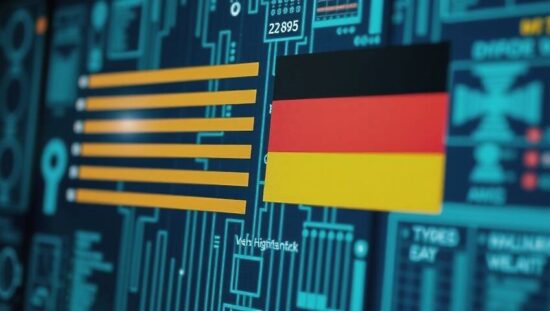Most Germans Fear Cyberattacks, Survey Finds
A recent survey by the IT industry association Bitkom, released on Thursday, reveals that a majority of the German population has a high level of fear regarding cyberattacks. According to the survey, 70 percent of Germans consider the threat of cybercrime to be high and an equal number believe that Germany is not well-prepared to deal with it.
Sixty-one percent of respondents are afraid of a cyberwar and for nearly two-thirds (64 percent) of the population, Germany is not well-equipped to handle the threat.
While the threat to their own families is perceived as high by only 37 percent of the respondents, with 11 percent considering it very high and 26 percent somewhat high, the general threat to Germany is seen as very high by 33 percent and somewhat high by 37 percent.
The main sources of cyber threats, according to the German public, are foreign intelligence agencies (78 percent) and organized crime (67 percent), followed by political or religious extremists (59 percent) and individual criminals (41 percent) and individuals without criminal or political intentions (32 percent).
In the view of the respondents, the greatest cyber threat comes from Russia (98 percent) and China (84 percent). North Korea is seen as a threat by a significantly lower percentage, at 44 percent. One-third of the respondents (32 percent) sees the United States as a significant cyber threat to Germany, followed by Iran (29 percent), Belarus (17 percent) and non-EU Eastern European states (14 percent).
Germany is seen as poorly prepared to face cyberattacks, with only 23 percent of the respondents believing that the public administration and institutions such as the police and the Bundeswehr are well-prepared. On the other hand, 29 percent see them as somewhat unprepared and 41 percent as not at all prepared.
Moreover, the survey shows that the public is concerned not only about the vulnerability to data theft or ransomware attacks, but also about the potential for future wars to be fought mainly with digital means. Seventy-one percent of the respondents believe that wars in the future will be fought mainly with digital means and 63 percent think that cyberattacks on critical infrastructure pose a greater threat to Germany than conventional military attacks. Two-thirds of the respondents (66 percent) are of the opinion that cyberattacks should be treated the same as military attacks.
The survey, conducted by Bitkom Research, polled 1,115 people aged 16 and above in Germany from the 49th week of 2024 to the second week of 2025 via telephone.





